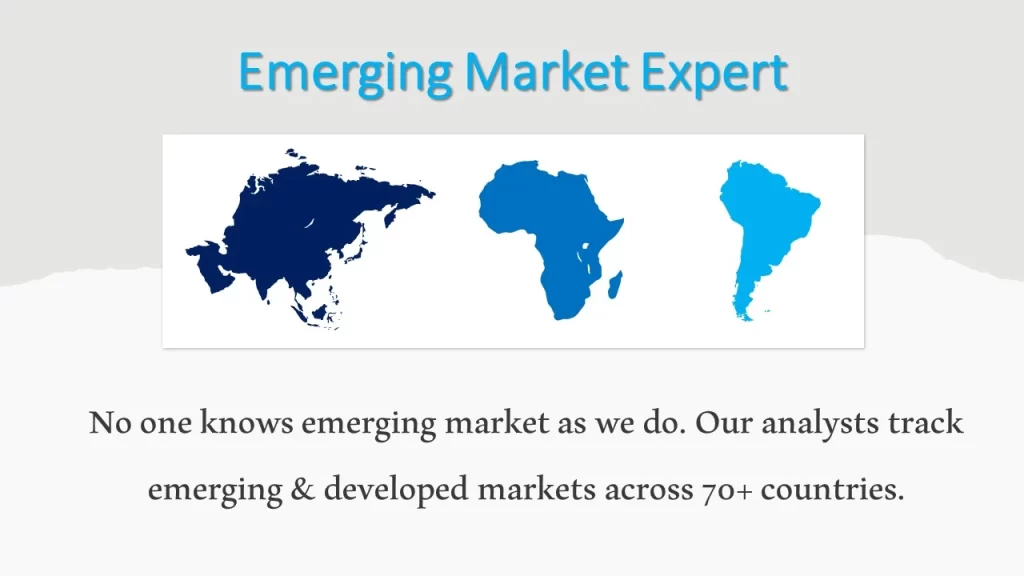Smart Building Market Size by Component (Solutions and Services), By Solution (Building Infrastructure Management (BIM), Security and Emergency Management, Energy Management, Network Management, and Workforce Management), By Services (Consulting, Integration and Deployment and Support & Maintenance), By Building Type (Residential, Commercial, and Industrial), By Region – Global Opportunities & Forecast, 2020-2027
Global Smart building market is predicted to witness a promising growth over the forecast period (2020-2027), owing to the ongoing technological innovations and increasing investment in smart city projects.
To have an edge over the competition by knowing the market dynamics and current trends of “Smart Building Market,” request for Sample Report here
Major Smart Building Market Drivers
Increasing adoption of the Artificial Intelligence, Internet of Things (IoT), Virtual Reality, and Business Information Modeling (BIM) in the Building Management System (BMS) is anticipated to serve a crucial role in driving the smart buildings market size. In addition, increasing government initiatives in order to minimize energy consumption is another factor fueling the market growth. As per the U.S., China Economic and Security Review Commission, the total investment by government on smart city initiatives in China will be more than $38.92 billion in 2023. Also, the Canadian government is emphasis on energy conservation, primarily in smart buildings, such as workplaces and houses. Further, increasing urbanization is forecast to speed up the global smart building market growth over the forthcoming years. For instance, according to the expert Forum 2019 report, nearly 70% of the world population is projected to reside in urban areas by 2050. Increasing investment in smart city projects with advanced infrastructure, intelligent buildings, and cleaner transportation, is forecast to offer enormous opportunities to the market. For example, in 2019, Empire State Development Authority (ESD) declared the Smart Cities Innovation Partnership program in collaboration with the Israel Innovation Authority. The partnership is intended to design five smart cities to connect with the evolving technologies and improve government services, and residents’ quality of life. However, the lack of experts skilled in assessing smart solution systems is likely to restrain the smart buildings market size over the forecast period.
Do you want to know more about the Research process and detailed Methodology, Request Research Methodology of this report
Solution Segment Analysis
The Energy Management segment is forecast to dominate the market during the forecast period, owing to the growing demand for smart building management solutions aided by the exceptional features offered, such as monitoring of the overall energy consumed by the building. The increasing implementation of Energy Management Systems (EMS) across commercial, industrial, and residential industries. Further, intensified government initiatives emphasizing on minimizing energy consumption is another factor fuelling the market growth.
Service Segment Analysis
Consulting service segment is expected to hold a larger share during the forecast period, owing to the growing demand for Smart Building systems across the globe. The growing demand of consumers to seek consulting services that provides a collective approach to design smart building and integrate the building systems with advanced technologies depending upon the specific business goals and needs. Thus, the growing demand for consulting services will boost the market growth.
Support and maintenance segment is forecast to witness a higher CAGR over the upcoming years, owing to the continuous support and maintenance services offered by vendors to improve the management and performance of smart buildings. For example, predictive building maintenance service minimizes the cost of handling real estate assets in a smart building and improve the tenant experience and stops malfunctions from increasing them to serious problems difficulties.
Building Type Segment Analysis
Commercial segment is predicted to expand at a faster CAGR during the forecast period. This growth is attributed to the growing emphasis of leading players on the development of smart corporate offices to improve the productivity of employees, optimize utilization of space while saving operational cost, and improve the security systems. Increasing complication in the airline industry has encouraged operators to seek for the integration of smart technologies in the complicated business, processes, and people to provide a hassle-free passenger experience. Thus, the rising trend of smart corporate offices and smart airport will augment the demand for smart commercial building market, driving the smart building market share.
Residential segment is predicted to witness a promising growth over the upcoming years, due to the growing demand for HVAC management, smart home lighting, smart door lock security systems, and smart meters to monitor the mechanical and electrical systems of buildings. For instance, in September 2020, leading technology players including Amazon, Apple, and Google entered into Zigbee Alliance to produce a single, open-source smart home platform. The project intends to encourage the adoption of a new, royalty-free networking standard to improve compatibility across smart home products.
In case, any of your pain points areas are not covered in the current scope of this report, Request for Customization here
Regional – Segment Analysis:
North America is expected to emerge as the fastest growing region in the market during the forecast period, due to the rapid digitalization and increasing private and public investments. Also, the advent of smart building solution with advanced technologies including deep learning, IoT, cloud computing, big data, data analytics, and artificial intelligence to conserve energy, minimize operational cost and fulfil strict regulatory norms and sustainability standards. The emerging need for energy efficient systems and strategic initiatives by governments will boost the smart buildings market growth over the forecast period. Furthermore, the growing emphasis of several end-use industries to convert their existing offices into smart offices in the U.S., will offer enormous opportunities to the market. For instance, in April 2022, JPMorgan Chase declared the launch a new smart headquarters with all-electric operation systems in New York. The company decided to use renewable power created by a hydroelectric plant in New York state, managed by energy management systems and equipped with Artificial Intelligence (AI) and Machine Learning (ML).
Top Market Players
Various notable players operating in the Global Smart Building market include Cisco, Schneider Electric, Hitachi, Ltd., Honeywell International Inc., Johnson Controls, IBM, Siemens, Intel Corporation, Huawei, and ABB, among others.
Key Developments
-
- In 2021, Siemens acquired digital twin software provider Ecodomus in the U.S to expand its product portfolio. Siemens incorporated this digital twin software into its Building Information Modeling (BIM) platforms, to help its clients a digital map of smart buildings. This assisted the company to increase its brand identity for digital win software in the smart building market
- In 2021 – Honeywell entered into a strategic partnership with Nexii Building Solutions Inc. to encourage the development of low-impact buildings. This partnership has designated Honeywell as the exclusive building technologies vendor for Nexii’s new buildings, offering products that provide energy savings and operational efficiencies.
- In 2021 – Johnson Controls, a vendor of smart, healthy, and sustainable buildings solutions, entered into a partnership with Connected IoT Device service vendor subsidiary of Arm to expediate the advancements in connectivity, safety, and intelligence at the edge for Johnson Controls OpenBlue technology.
- In 2020 – Cylon Controls was acquired by ABB, to strengthen its presence in the smart building segment. The acquisition will raise the portfolio of commercial building solutions, focusing on delivering innovations in energy optimization and comfort.
- In 2020, Johnson Control launched a New York Rooftop line, specially designed to improve the energy efficiency and to meet the current and future needs of end users and contractors.
Segments covered in the Report:
The Global Smart Building market has been segmented based on Component, Solution, Services, Building Type and Regions. Based on Component, the market is segmented into Solutions and Services. Based on Solution, the market is segmented into Building Infrastructure Management (BIM), Security and Emergency Management, Energy Management, Network Management and Workforce Management. Based on Services, the market is segmented into Consulting, Integration and Deployment and Support and Maintenance. Based on Building Type, the market is segmented into Residential, Commercial, and Industrial.
For detailed scope of the “Smart Building Market” report request a Sample Copy of the report
Key questions answered in this research report:
-
- At what pace is the global Smart Building market growing? What will be the growth trend in the future?
- What are the key drivers and restraints in the global Smart Building market? What will be the impact of drivers and restraints in the future?
- What are the regional revenues and forecast breakdowns? Which are the major regional revenue pockets for growth in the global Smart Building market?
- Which components generated maximum revenues in 2019 and identify the most promising components during the forecast period?
- What are the various solution areas of the global Smart Building market and how they are poised to grow?
- What companies are the major participants in this market and their business strategies, how does the competitive landscape look like?
|
Report Coverage |
Details |
| Market Base Year |
2019 |
| Market Forecast Period |
2020-2027 |
| Market Revenues Currency |
USD Million |
| Base Year & Forecast Units |
Value (USD Million) |
| Market Segment | By Component, By Solution, By Services, By Building Type, By Regions |
| Regional Coverage | Asia Pacific, Europe, North America, and RoW |
| Companies Profiled | Cisco, Schneider Electric, Hitachi, Ltd., Honeywell International Inc., Johnson Controls, IBM, Siemens, Intel Corporation, Huawei, and ABB, among others; a total of 10 companies covered |
| 25% Free Customization Available | We will customize this report up to 25% as a free customization to address our client’s specific requirements |
Market Segmentation:
Global Smart Building Market by Component
-
- Solutions
- Services
Global Smart Building Market by Solution
-
- Building Infrastructure Management (BIM)
- Parking Management System
- Smart Water Management System
- Elevators and Escalators Management System
- Security and Emergency Management
- Access Control System
- Video Surveillance System
- Safety System
- Energy Management
- HVAC Control System
- Lighting System
- Network Management
- Workforce Management
- Building Infrastructure Management (BIM)
Global Smart Building Market by Services
-
- Consulting
- Integration and Deployment
- Support and Maintenance
Global Smart Building Market by Building Type
-
- Residential
- Commercial
- Office Buildings
- Retail and Public Assembly Buildings
- Hospital and Healthcare Facilities
- Airports and Railway Stations
- Others
- Industrial
Global Smart Building Market by Region
-
-
North America Smart Building Market (Option 1: As a part of the free 25% customization)
- By Component
- By Solution
- By Services
- By Building Type
- United States of States Market All-Up
- Canada Market All-Up
-
Europe Smart Building Market (Option 2: As a part of the free 25% customization)
- By Component
- By Solution
- By Services
- By Building Type
- United Kingdom Market All-Up
- Germany Market All-Up
- France Market All-Up
- Spain Market All-Up
- Rest of Europe Market All-Up
-
Asia-Pacific Smart Building Market (Option 3: As a part of the free 25% customization)
- By Component
- By Solution
- By Services
- By Building Type
- China Market All-Up
- India Market All-Up
- Japan Market All-Up
- Rest of APAC Market All-Up
-
RoW Smart Building Market (Option 4: As a part of the free 25% customization)
- By Component
- By Solution
- By Services
- By Building Type
- Brazil Market All-Up
- South Africa Market All-Up
- Saudi Arabia Market All-Up
- Rest of world (remaining countries of the LAMEA region) Market All-Up
-
Global Smart Building Leading Market Players (Option 5: As a part of the Free 25% Customization – Profiles of 5 Additional Companies of your Choice)
-
- Cisco
- IBM
- Hitachi, Ltd.
- Honeywell International Inc.
- Siemens
- Schneider Electric
- Intel Corporation
- Johnson Controls
- Huawei
- ABB
- Published Date: Jun-2020
- Report Format: Excel/PPT
- Report Code: ICT13A-00-0719
Licensing Options
Single-User License:
The report is used by the purchaser (One Individual) only
Multi-User License:Report is shared with maximum 5 users (employees) including the purchaser of the purchasing corporation only
Corporate License:
Report is shared with unlimited user (employees) of the purchasing corporation only
The report is used by the purchaser (One Individual) only
Multi-User License:Report is shared with maximum 5 users (employees) including the purchaser of the purchasing corporation only
Corporate License:
Report is shared with unlimited user (employees) of the purchasing corporation only
Smart Building Market Size by Component (Solutions and Services), By Solution (Building Infrastructure Management (BIM), Security and Emergency Management, Energy Management, Network Management, and Workforce Management), By Services (Consulting, Integration and Deployment and Support & Maintenance), By Building Type (Residential, Commercial, and Industrial), By Region – Global Opportunities & Forecast, 2020-2027
$ 4,499.00 – $ 6,649.00
Why GMI Research







